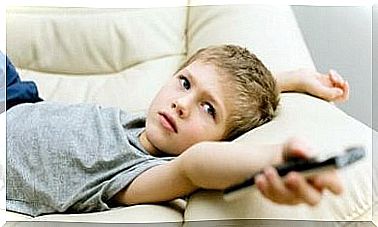The Theory Of Mind: Definition And Characteristics

What is the Theory of Mind?
Theory of mind is the ability that allows us to attribute mental states to ourselves and to other people. Thanks to this we can realize what others believe, think, feel or want, so that we are able to predict and understand their behaviors.
This capacity is found in the human being innately, but begins to develop significantly after 2 years. From that moment, children begin to acquire the skill of creating stories and playing symbolically.
These inventions gradually evolve into a fully elaborated Theory of Mind.
Origin of this concept: an experiment with chimpanzees
This complex cognitive capacity is typical of the human being, but also of some apes. In fact, the concept of Theory of Mind was proposed by Premack and Woodruff, two researchers who carried out an experiment to show that chimpanzees could understand the human mind.
To do this, they selected a chimpanzee from their laboratory that was regularly in contact with humans. They showed him a video in which one of his keepers appeared locked in a cage, trying to catch a banana that was out of his reach. To reach it, this person could use certain instruments that were nearby.
At the moment when the human tried to take the banana, the experimenters stopped the image and showed the chimpanzee two photographs, one of them with the correct solution of what the person would do to achieve their goal.

The chimp got it right the vast majority of times. So they concluded that he had the Theory of Mind, since he could assume that the human wanted to get the banana and knew how to do it.
Following the impact of this study, many others have been carried out. Currently, it can be said that only humans and some apes are capable of carrying out this type of mental representations with which the emotions and behaviors of others can be understood and intuited.
Problems in the development of the Theory of Mind
The Theory of Mind is part of our social area. This aspect will be affected in our life if we do not acquire this ability.
This is the case of people with Autism Spectrum Disorder (ASD), who fail to innately develop this cognitive ability. This deficit largely explains the social problems they present.
Therefore, as a consequence, they may show difficulties in:
- Recognize complex emotional states.
- Predict and understand the behaviors and intentions of others.
- Perform or understand ironies and lies.
- Participate in symbolic games.
- Take into account the level of knowledge and interest of the interlocutor about the topic of conversation.
- Understand social interactions.
But, if you have a child with ASD, don’t worry, because the Theory of Mind only has to be trained to acquire it, so it can be learned through certain exercises.
For example, on the ARASAAC page (Portal Aragonese of Augmentative and Alternative Communication) you can find a wide variety of materials to work on this skill in an effective and attractive way for your child. However, the true intervention to re-educate your child in this and other skills must always be carried out by a specialized professional.

In conclusion…
Ultimately, the Theory of Mind helps us understand the people with whom we interact on a daily basis. It is an essential skill to develop empathy, active listening and assertiveness.
And remember…
This is the success of having satisfactory social relationships.










